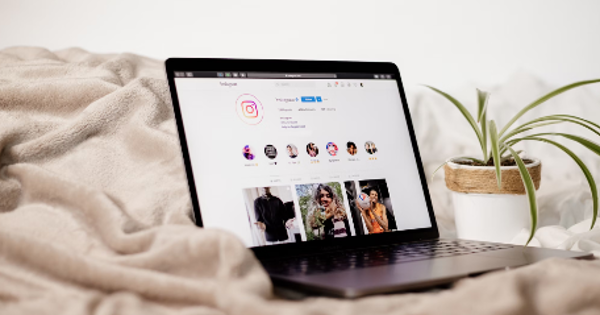2/27/2024
Today, two powerful factors decide how you rank on the internet - social media and SEO (Search Engine Optimization). But have you ever wondered how these two are interconnected? How does your social media presence affect your website's search engine rankings? In this article, we'll dive into the exciting relationship between social media and SEO.
Key Takeaways
- Introduction to Social Media and SEO
- Social Media Overview
- SEO Recap
- Connection between Social Media and SEO
- Social Media Platforms and SEO Impact
- Tips for Leveraging Social Media for SEO
- Potential Pitfalls of Social Media on SEO
- Conclusion
Introduction to Social Media and SEO

A notebook with the word SEO written on it - Pexels -Tobias Dziuba
Social media has taken the world by storm, and you're probably using it too! It's all about connecting with others, sharing content, and engaging in conversations through online platforms like Facebook, Twitter, Instagram, LinkedIn, and more. From posting eye-catching photos to sharing your thoughts on current events, social media lets you express yourself like never before.
Search Engine Optimization, or SEO, is the art of making your website rank higher on search engine results pages (SERPs). The higher you rank, the more visible you become to potential visitors. This is vital because let's face it - when was the last time you ventured beyond the first page of search results?
The Dance between Social Media and SEO

a laptop computer sitting on top of a bed - Unsplash - Collabstr
Now, you might be wondering, "How on earth are these two seemingly different concepts connected?" Let's uncover the magic that happens when social media and SEO collide:
- Direct and Indirect Impact: Social media directly and indirectly influences your website's SEO. Directly, search engines like Google consider social signals (likes, shares, comments, etc.) as indicators of content quality and relevance. Indirectly, a strong social media presence can drive traffic to your website, increase brand visibility, and encourage other websites to link to your content - all of which boost your SEO.
- Link Building Through Social Sharing: Remember those links we just mentioned? Well, search engines love backlinks! When your content is shared across social media and other websites, it creates a network of valuable links that point back to your site. This link love signals to search engines that your content is valuable and authoritative, ultimately improving your rankings.
- Content Amplification and Virality: The power of social media lies in its ability to amplify your content's reach. A viral post can spread like wildfire, generating immense interest, shares, and backlinks. This surge in attention can significantly impact your website's SEO, as search engines see this increased engagement as a sign of relevancy and popularity.
- Enhanced User Engagement and Dwell Time: Social media can lead people to your website, and once there, it encourages user engagement. A lively and active social media presence can entice visitors to stay longer on your site, exploring more pages, which boosts "dwell time." Google takes note of this extended engagement and considers it a positive signal for your SEO.
Social Media Platforms and Their Impact on SEO

Photo of Hand Holding a Black Smartphone with Social Media Icons displayed. Pexels - Magnus Mueller
Different social media platforms wield varying degrees of influence on your website's SEO. Let's take a look at some of the major players:
- Facebook: As the social media behemoth, Facebook can have a massive impact on your SEO. Its large user base and high engagement rates mean that content shared on Facebook can quickly go viral and garner backlinks. Also, Facebook Business Pages and content shares can appear in search engine results, giving you additional visibility.
- Twitter: While Twitter's tweets are typically fleeting, they can make a significant impact on your SEO. Hashtags and keywords in tweets can help improve content discoverability. Plus, influential users with many followers can lead to more shares and backlinks, further boosting your search engine rankings.
- Instagram: As a visual platform, Instagram's influence on SEO is primarily indirect. Stunning images and compelling captions can drive users to visit your website, thereby increasing traffic and potentially improving your SEO.
- LinkedIn: For B2B businesses, LinkedIn is a goldmine. Sharing valuable content here can lead to higher engagement among professionals, and if your posts gain traction, they may be indexed by search engines, increasing your online visibility.
Tips to Leverage Social Media for Better SEO

macbook pro on brown wooden table - Unsplash - Samantha Borges
Now that we understand the connection between social media and SEO, let's explore some actionable tips to harness their power effectively:
- Create Shareable Content: Producing high-quality, shareable content is the key to social media success. Whether it's an informative blog post, an engaging video, or an eye-catching infographic, focus on content that people will love to share.
- Optimize Social Profiles: Ensure your social media profiles are complete, professional, and link back to your website. Consistency in branding across platforms is essential. Include relevant keywords in your profiles to improve discoverability.
- Engage and Build Relationships: Social media is all about building connections. Engage with your audience, respond to comments and messages, and be genuine in your interactions. Building a loyal community can lead to more shares and a stronger online presence.
- Use Hashtags and Keywords Wisely: Employ relevant hashtags and keywords in your social media posts to increase the chances of being discovered by both your followers and new audiences interested in your niche.
- Incorporate Social Sharing Buttons: Make it easy for website visitors to share your content by adding social sharing buttons to your blog posts and web pages.
- Measure and Analyze Performance: Keep track of your social media efforts using analytics and free SEO tools. Monitor which posts perform best and adjust your strategy accordingly to maximize engagement.
The Dark Side: Potential Pitfalls of Social Media on SEO

Angry annoyed disappointed displeased showing thumbs down - Image by kues1 on Freepik
As with any great adventure, there are challenges to be aware of. While social media can work wonders for your SEO, it's essential to tread carefully to avoid some common pitfalls:
- Spam and Low-Quality Backlinks: While backlinks can positively impact SEO, not all backlinks are created equal. Spammy or low-quality backlinks from social media platforms can harm your rankings. Focus on building organic and high-quality links.
- Overemphasis on Vanity Metrics: It's easy to get caught up in vanity metrics like follower counts and likes. Remember that genuine engagement and meaningful interactions are more valuable in the long run.
- Misalignment with Branding: Inconsistent branding across social media platforms can confuse your audience and dilute your brand's identity. Stay true to your brand's voice and values.
Conclusion
As we conclude our journey, we've learned that social media and SEO are indeed interconnected. By strategically leveraging the power of social media platforms, you can improve your website's search engine rankings and broaden your online presence. Remember, it's all about creating shareable content, building meaningful connections, and staying true to your brand's identity.
Frequently Asked Questions
Social media and SEO are interconnected through direct and indirect impacts. Social signals, like likes and shares, directly influence search engine rankings. Indirectly, a strong social media presence can drive website traffic, increase brand visibility, and generate backlinks, all contributing to improved SEO.
Link building through social sharing is a significant aspect. When content is shared on social media, it creates valuable backlinks to the website. Search engines recognize these links as signals of content value and authority, positively impacting SEO rankings.
Social media can drive people to a website, and engaging content encourages users to stay longer, improving "dwell time." The extended engagement is seen positively by search engines, contributing to improved SEO.
Different platforms have varying degrees of influence. Facebook's large user base can lead to viral content and increased visibility. Twitter's tweets with hashtags and keywords enhance content discoverability. Instagram, primarily visual, can indirectly increase website traffic. LinkedIn, especially for B2B businesses, can boost engagement and online visibility.
Tips include creating shareable content, optimizing social profiles, engaging with the audience, using hashtags and keywords wisely, and incorporating social sharing buttons on the website. Measuring and analyzing performance with analytics tools and free SEO tools is also crucial.
Pitfalls include spam and low-quality backlinks that can harm rankings. Overemphasis on vanity metrics, such as follower counts, may distract from genuine engagement. Misalignment with branding, like inconsistent brand identity, can confuse the audience.
Focus on building organic and high-quality links. Be selective in the content shared and the platforms used. Prioritize meaningful interactions and genuine engagement over quantity.
Consistent branding reinforces a brand's identity and prevents confusion. Misalignment with branding can dilute the brand's identity and negatively impact the overall online presence. Staying true to the brand's voice and values is essential for a strong and recognizable online influence.

